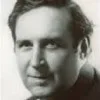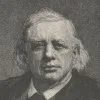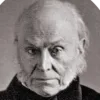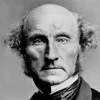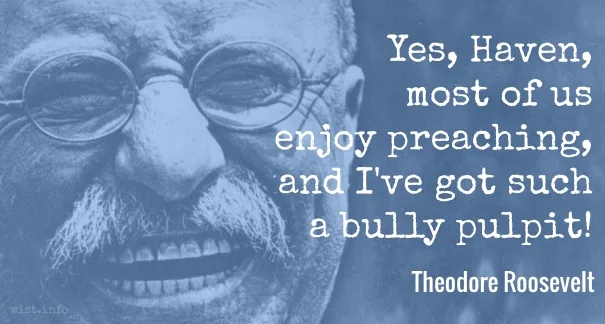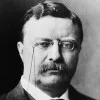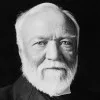When one reads any strongly individual piece of writing, one has the impression of seeing a face somewhere behind the page […] Well, in the case of Dickens I see a face that is not quite the face of Dickens’s photographs, though it resembles it. It is the face of a man of about forty, with a small beard and a high colour. He is laughing, with a touch of anger in his laughter, but no triumph, no malignity. It is the face of a man who is always fighting against something, but who fights in the open and is not frightened, the face of a man who is generously angry — in other words, of a nineteenth-century liberal, a free intelligence, a type hated with equal hatred by all the smelly little orthodoxies which are now contending for our souls.
George Orwell (1903-1950) English writer [pseud. of Eric Arthur Blair]
Essay (1939), “Charles Dickens,” sec. 6, Inside the Whale (1940-03-11)
(Source)
Closing words of the essay.
Quotations about:
cause
Note not all quotations have been tagged, so Search may find additional quotes on this topic.
World War I is much more typical of the wars of history than World War II — the kind of war you look back afterward and say, “What the hell were we fighting for? Why did all these millions of people have to die? Was it really worth it to get rid of the Austro-Hungarian Empire, that we wiped out an entire generation, and tore up half the continent? Was the War of 1812 worth fighting? The Spanish-American War? What the hell were these people fighting for?”
George R. R. Martin (b. 1948) American author and screenwriter [George Raymond Richard Martin]
Interview (2014-04-23) by Mikal Gilmore, “The Rolling Stone Interview,” Rolling Stone
(Source)
Nobody wants his cause near as bad as he wants to talk about his cause.
Will Rogers (1879-1935) American humorist
Column (1934-09-11), “Daily Telegram”
(Source)
Written while in London.
A good Cause doth not want any Bitterness to support it, as a bad one cannot subsist without it. It is indeed observable, that an Author is scurrilous in proportion as he is dull; and seems rather to be in a Passion, because he cannot find out what to say for his own Opinion, than because he has discovered any pernicious Absurdities in that of his Antagonists.
Joseph Addison (1672-1719) English essayist, poet, statesman
Essay (1716-06-29), The Freeholder, No. 55
(Source)
Much less evil would be done on earth if evil could not be done in the name of good.
[Es würde sehr wenig Böses auf Erden getan werden, wenn das Böse niemals im Namen des Guten getan werden könnte.]
Marie von Ebner-Eschenbach (1830-1916) Austrian writer
Aphorisms [Aphorismen], No. 97 (1880) [tr. Scrase/Mieder (1994)]
(Source)
(Source (German)). Alternate translation:But little evil would be done in the world if evil could never be done in the name of good.
[tr. Wister (1883)]
No matter what cause one defends, it will suffer permanent disgrace if one resorts to blind attacks on crowds of innocent people in which the killer knows in advance that he will kill women and children.
Albert Camus (1913-1960) Algerian-French novelist, essayist, playwright
Algerian Chronicles [Chroniques Algérienne], Preface (1948) [tr. Goldhammer (2013)]
(Source)
Criticizing the Front de Libération Nationalale (FLN), the movement for Algerian independence (after similarly criticizing the French government for its violent activity).
The fiercest fanatics are often selfish people who were forced, by innate shortcomings or external circumstances, to lose faith in their own selves. They separate the excellent instrument of their selfishness from their ineffectual selves and attach it to the service of some holy cause. And though it be a faith of love and humility they adopt, they can be neither loving nor humble.
Eric Hoffer (1902-1983) American writer, philosopher, longshoreman
True Believer: Thoughts on the Nature of Mass Movements, Part 2, ch. 7, § 38 (1951)
(Source)
They never fail who die
In a great cause.George Gordon, Lord Byron (1788-1824) English poet
Marino Faliero, Act 2, sc. 2 [Israel Bertuccio] (1821)
(Source)
A good cause can become bad if we fight for it with means that are indiscriminately murderous. A bad cause can become good if enough people fight for it in a spirit of comradeship and self-sacrifice. In the end it is how you fight, as much as why you fight, that makes your cause good or bad.
Freeman Dyson (1923-2020) English-American theoretical physicist, mathematician, futurist
Disturbing the Universe, ch. 4 (1979)
(Source)
Remember that you can’t necessarily sanctify a cause by virtue of the fact that men die for it. A death in a worthless or even questionable cause is a pointless, meaningless, tragically premature death.
Rod Serling (1924-1975) American screenwriter, playwright, television producer, narrator
Commencement Address, Ithaca College, New York (13 May 1972)
(Source)
Too many wars are fought almost as if by rote. Too many wars are fought out of sloganry, out of battle hymns, out of aged, musty appeals to patriotism that went out with knighthood and moats. Love your country because it is eminently worthy of your affection. Respect it because it deserves your respect. Be loyal to it because it cannot survive without your loyalty. But do not accept the shedding of blood as a natural function or a prescribed way of history, even if history points this up by its repetition. That men die for causes does not necessarily sanctify that cause. And that men are maimed and torn to pieces every fifteen and twenty years does not immortalize or deify the act of war.
Rod Serling (1924-1975) American screenwriter, playwright, television producer, narrator
Commencement Address, Binghamton Central High School, Binghamton, New York (28 Jan 1968)
(Source)
And that this is the Case very often, we may observe from the Behaviour of some of the most zealous for Orthodoxy, who have often great Friendships and Intimacies with vicious immoral Men, provided they do but agree with them in the same Scheme of Belief.
Joseph Addison (1672-1719) English essayist, poet, statesman
Essay (1711-10-02), The Spectator, No. 185
(Source)
It is the high priests that make demands — not the gods they serve.
Stanislaw Lec (1909-1966) Polish aphorist, poet, satirist
More Unkempt Thoughts [Myśli nieuczesane nowe] (1964) [tr. Gałązka (1969)]
(Source)
Every man knows there are evils in this world which need setting right. Every man has pretty definite ideas as what these evils are. But to most men one in particular stands out vividly. To some, in fact, this stands out with such startling vividness that they lose sight of other evils, or look upon them as the natural consequence of their own particular evil-in-chief.
Henry Hazlitt (1894-1993) American business and economics journalist
Thinking As A Science, ch. 1, opening words (1916)
(Source)
There is always a certain glamour about the idea of a nation rising up to crush an evil simply because it is wrong. Unfortunately, this can seldom be realized in real life; for the very existence of the evil usually argues a moral weakness in the very place where extraordinary moral strength is called for.
W. E. B. Du Bois (1868-1963) American writer, historian, social reformer [William Edward Burghardt Du Bois]
The Suppression of the African Slave-Trade to the United States of America, ch. 12, sec. 93 (1896)
(Source)
Men use up their lives in heart-breaking political struggles, or get themselves killed in civil wars, or tortured in the secret prisons of the Gestapo, not in order to establish some central-heated, air-conditioned, strip-lighted Paradise, but because they want a world in which human beings love one another instead of swindling and murdering one another. And they want that world as a first step. Where they go from there is not so certain, and the attempt to foresee it in detail merely confuses the issue.
George Orwell (1903-1950) English writer [pseud. of Eric Arthur Blair]
“Can Socialists Be Happy?” Tribune (1943-12-20) [as John Freeman]
(Source)
I’m a pacifist about certain things. I’m a pacifist in the way I define national interest. I use this example frequently: If the Mexicans decided to cross the Texas border with firearms, I would be down there in a moment with a rifle and a whistle to direct the troops to repel them. If the United States is attacked, I will defend it. My problem is the United States’ defending the interests of the Union Oil Company or the United Fruit Company. Those are not American interests. They’re private-money interests, and that bothers me a great deal.
Paul Fussell (1924-2012) American cultural and literary historian, author, academic
“The Initial Shock,” Interview by Sheldon Hackney, Humanities (Nov/Dec 1996)
(Source)
Macbeth’s self-justifications were feeble — and his conscience devoured him. Yes, even Iago was a little lamb, too. The imagination and spiritual strength of Shakespeare’s evildoers stopped short at a dozen corpses. Because they had no ideology.
Ideology — that is what gives evildoing its long-sought justification and gives the evildoer the necessary steadfastness and determination. That is the social theory which helps to make his acts seem good instead of bad in his own and others’ eyes, so that he won’t hear reproaches and curses but will receive praise and honors. That was how the agents of the Inquisition fortified their wills: by invoking Christianity; the conquerors of foreign lands, by extolling the grandeur of their Motherland; the colonizers, by civilization; the Nazis, by race; and the Jacobins (early and late), by equality, brotherhood, and the happiness of future generations.
Alexander Solzhenitsen (1918-2008) Russian novelist, emigre [Aleksandr Isayevich Solzhenitsyn]
The Gulag Archipelago, Vol. 1, Part 1, ch. 4 (1973) [tr. Whitney]
(Source)
I think one must engage in politics — using the word in a wide sense — and that one must have preferences: that is, one must recognise that some causes are objectively better than others, even if they are advanced by equally bad means. As for the nationalistic loves and hatreds that I have spoken of, they are part of the make-up of most of us, whether we like it or not. Whether it is possible to get rid of them I do not know, but I do believe that it is possible to struggle against them, and that this is essentially a moral effort. It is a question first of all of discovering what one really is, what one’s own feelings really are, and then of making allowance for the inevitable bias.
George Orwell (1903-1950) English writer [pseud. of Eric Arthur Blair]
“Notes on Nationalism” (May 1945)
(Source)
To the wrong that needs resistance
To the right that needs assistance
To the future in the distance
Give yourself!Carrie Chapman Catt (1859-1947) American women's suffrage activist
Personal Motto
(Source)
Conveyed in a letter from Catt to Aletta Jacobs, after the death of Jacobs' husband.
Truth is the first casualty in war.
Aeschylus (525-456 BC) Greek dramatist (Æschylus)
(Misattributed)
Variant: "Truth is the first casualty of war."
Not found, as such, in Aeschylus' works. The closest (Fragm. Incert, xi.) is his phrase "God is not averse to deceit in a just cause." Attribution to of the subject phrase to Aeschylus dates only back to 1965. The first recorded use of the phrase as such is from 1915, but even there it is offered as a quotation from an unnamed source.
More discussion of the history of this phrase can be found here and here.
History is thought of largely in nationalist terms, and such things as the Inquisition, the tortures of the Star Chamber, the exploits of the English buccaneers (Sir Francis Drake, for instance, who was given to sinking Spanish prisoners alive), the Reign of Terror, the heroes of the Mutiny blowing hundreds of Indians from the guns, or Cromwell’s soldiers slashing Irishwomen’s faces with razors, become morally neutral or even meritorious when it is felt that they were done in the “right” cause. If one looks back over the past quarter of a century, one finds that there was hardly a single year when atrocity stories were not being reported from some part of the world; and yet in not one single case were these atrocities — in Spain, Russia, China, Hungary, Mexico, Amritsar, Smyrna — believed in and disapproved of by the English intelligentsia as a whole. Whether such deeds were reprehensible, or even whether they happened, was always decided according to political predilection.
George Orwell (1903-1950) English writer [pseud. of Eric Arthur Blair]
“Notes on Nationalism” (May 1945)
(Source)
It’s a blessing to die for a cause, because you can so easily die for nothing.
Andrew Young (b. 1932) American politician, diplomat, activist
Interview by Peter Ross Range, Playboy (Jul 1977)
(Source)
Because one cause is bad does not make the opposing cause good.
Fay Weldon (b. 1931) English author, essayist, playwright
Letters to Alice on First Reading Jane Austen (1984)
(Source)
HENRY: God befriend us as our cause is just.
William Shakespeare (1564-1616) English dramatist and poet
Henry IV, Part 1, Act 5, sc. 1, l. 121 (5.1.121) (1597)
(Source)
As a cause becomes more and more successful, the ideas of the people engaged in it are bound to change.
Margaret Sanger (1879-1966) American birth control activist, sex educator, nurse
Margaret Sanger: An Autobiography, ch. 32 (1938)
(Source)
When the conduct of men is designed to be influenced, persuasion, kind, unassuming persuasion, should ever be adopted. It is an old and true maxim “that aa drop of honey catches more flies than a gallon of gall.” If you would win a man to your cause, first convince him that you are his sincere friend. Therein is a drop of honey that catches his heart, which, say what you will, is the great high-road to his reason, and which, when once gained, you will find but little trouble in convincing his judgement of the justice of your cause, if indeed that cause really be a just one.
Abraham Lincoln (1809-1865) American lawyer, politician, US President (1861-65)
Speech, Washingtonian Temperance Society, Springfield, Illinois (22 Feb 1842)
(Source)
If you believe you have a just cause, an important message, or a key contribution to make, you will be just as innovative as a college freshman desperate to see his girlfriend six hundred miles away. You will get there any way you can.
Laurie Beth Jones (b. 1952) American author, motivational speaker, leadership coach
Jesus, CEO, “He Was Willing to Do an End Run” (1995)
(Source)
One need not go back two thousand years to the time when those who believed in the gospel of Jesus were thrown into the arena or hunted into dungeons to realize how little great beliefs or earnest believers are understood. The history of progress is written in the blood of men and women who have dared to espouse an unpopular cause, as, for instance, the black man’s right to his body, or woman’s right to her soul. If, then, from time immemorial, the New has met with opposition and condemnation, why should my beliefs be exempt from a crown of thorns?
Emma Goldman (1869-1940) Lithuanian-American anarchist, activist
“What I Believe,” New York World (19 Jul 1908)
(Source)
Ignorance of remote causes disposeth men to attribute all events to the causes immediate and instrumental: for these are all the causes they perceive.
A bad cause seldom fails to betray itself.
James Madison (1751-1836) American statesman, political theorist, US President (1809-17)
The Federalist Papers, #41 (19 Jan 1788)
(Source)
We are all ready to be savage in some cause. The difference between a good man and a bad one is the choice of the cause.
William James (1842-1910) American psychologist and philosopher
Letter to E. L. Godkin (24 Dec 1895)
(Source)
Truth never damages a cause that is just.
Mohandas Gandhi (1869-1948) Indian lawyer, anti-colonial nationalist, political ethicist [Mahatma Gandhi]
Non-Violence in Peace and War, Vol. 2 (1949)
(Source)
There is no wilderness where I can hide from these things, there is no haven where I can escape them; though I travel to the ends of the earth, I find the same accursed system — I find that all the fair and noble impulses of humanity, the dreams of poets and the agonies of martyrs, are shackled and bound in the service of organized and predatory Greed! And therefore I cannot rest, I cannot be silent; therefore I cast aside comfort and happiness, health and good repute — and go out into the world and cry out the pain of my spirit!
Upton Sinclair (1878-1968) American writer, journalist, activist, politician
The Jungle, ch. 28 (1906)
(Source)
Great causes are never tried on their merits; but the cause is reduced to particulars to suit the size of the partisans, and the contention is ever hottest on minor matters.
Ralph Waldo Emerson (1803-1882) American essayist, lecturer, poet
“Nature,” Essays: Second Series (1844)
(Source)
When great causes are on the move in the world, stirring all men’s souls, drawing them from their firesides, casting aside comfort, wealth, and the pursuit of happiness in response to impulses at once awe-striking and irresistible, we learn that we are spirits, not animals, and that something is going on in space and time, and beyond space and time, which, whether we like it or not, spells duty.
Winston Churchill (1874-1965) British statesman and author
BBC Radio broadcast (16 Jun 1941)
(Source)
First published in the Imperial Review (28 Jun 1941).
It is too true, however disgraceful it may be to human nature, that nations in general will make war whenever they have a prospect of getting anything by it; nay, absolute monarchs will often make war when their nations are to get nothing by it, but for the purposes and objects merely personal, such as thirst for military glory, revenge for personal affronts, ambition, or private compacts to aggrandize or support their particular families or partisans. These and a variety of other motives, which affect only the mind of the sovereign, often lead him to engage in wars not sanctified by justice or the voice and interests of his people.
John Jay (1745-1829) American statesman, diplomat, abolitionist, politician, Chief Justice (1789-1795)
The Federalist #4 (7 Nov 1787)
(Source)
I give it as my firmest conviction that service to a just cause rewards the worker with more real happiness and satisfaction than any other venture of life.
Carrie Chapman Catt (1859-1947) American women's suffrage activist
“The Making of A Pioneer Suffragette,” in The American Scrap Book (1928)
(Source)
When a just cause reaches its flood-tide … whatever stands in the way must fall before its overwhelming power.
Carrie Chapman Catt (1859-1947) American women's suffrage activist
“Is Woman Suffrage Progressing?” speech, Sixth Convention of the International Woman Suffrage Alliance, Stockholm (13 Jun 1911)
(Source)
If it be true, that men are miserable because they are wicked, it is likewise true, that many are wicked because they are miserable.
Samuel Taylor Coleridge (1772-1834) English poet and critic
Aids to Reflection, “Prudential Aphorisms II” (1831 ed.)
(Source)
What I’m suggesting is, stand for yourself, be for something and the hell with it. Because the hand-wringers and the editorialists and the sigh-and-pontificate crowd will be against you, whatever you do.
James Carville (b. 1944) American political consultant
Interview with Joan Walsh, Salon (11 Mar 2002)
(Source)
For the Communists offer one precious, fatal boon: they take away the sense of sin. It may or may not be debatable whether a man can live without God; but, if it were possible, we should pass a law forbidding a man to live without the sense of sin.
Murray Kempton (1917-1997) American journalist.
Part of Our Time: Some Ruins & Monuments of the Thirties, ch. 1 “The Sheltered Life” (1955)
(Source)
If a political party does not have its foundation in the determination to advance a cause that is right and that is moral, then it is not a political party; it is merely a conspiracy to seize power.
Dwight David Eisenhower (1890-1969) American general, US President (1953-61)
Speech, Fourth Annual Republican Women’s National Conference, Washington, DC (6 Mar 1956)
(Source)
You can always hear the people who are willing to sacrifice somebody else’s life. They’re plenty loud and they talk all the time. You can find them in churches and schools and newspapers and congresses. That’s their business. They sound wonderful. Death before dishonor. This ground sanctified by blood. These men who died so gloriously. They shall not have died in vain. Our noble dead.
Hmmmm.
But what do the dead say?
Did anybody ever come back from the dead any single one of the millions who got killed did any one of them ever come back and say by god I’m glad I’m dead because death is always better than dishonor? Did they say I’m glad i died to make the world safe for democracy? Did they say i like death better than losing liberty? Did any of them ever say it’s good to think i got my guts blown out for the honor of my country? Did any of them ever say look at me i’m dead but i died for decency and that’s better than being alive? Did any of them ever say here i am, i’ve been rotting for two years in a foreign grave but it’s wonderful to die for your native land? Did any of them say hurray I died for womanhood and I’m happy, see how I sing even though my mouth is choked with worms?
Dalton Trumbo (1905-1976) American screenwriter and novelist [James Dalton Trumbo]
Johnny Got His Gun (1938)
(Source)
Your Honor, years ago I recognized my kinship with all living beings, and I made up my mind then that I was not one bit better than the meanest on earth. I said then, and I say now, that while there is a lower class, I am in it; and while there is a criminal element, I am of it; and while there is a soul in prison, I am not free.
Eugene V. Debs (1855-1926) American union leader, activist, socialist, politician
Statement to the Court (1918-09-18)
(Source)
On being convicted of sedition for urging resistance to the draft. Often paraphrased:As long as there is a lower class, I am in it. As long as there is a criminal element, I am of it. As long as there is a soul in prison, I am not free.
The biggest sin is sitting on your ass.
Florynce "Flo" Kennedy (1916-2000) American lawyer, feminist, civil rights activist
(Attributed)
(Source)
Quoted in Gloria Steinem, "The Verbal Karate of Florynce R. Kennedy, Esq.," Ms. (Mar 1973).
Full quote: "Some people say they won’t work 'inside the system' -- they’re 'waiting for the revolution.' Well, when the ramparts are open, honey, I'll be there. But until then, I'm going to go right on zapping the business and government delinquents, the jockocrats, the fetus fetishists, and all the other niggerizers any way I can. The biggest sin is sitting on your ass."
This is no day for the rabble-rouser, whether he be Negro or white. We must realize that we are grappling with the most weighty social problem of this nation, and in grappling with such a complex problem there is no place for misguided emotionalism. We must work passionately and unrelentingly for the goal of freedom, but we must be sure that our hands are clean in the struggle. We must never struggle with falsehood, hate, or malice. We must never become bitter. I know how we feel sometime. There is the danger that those of us who have been forced so long to stand amid the tragic midnight of oppression—those of us who have been trampled over, those of us who have been kicked about — there is the danger that we will become bitter. But if we will become bitter and indulge in hate campaigns, the new order which is emerging will be nothing but a duplication of the old order.
Martin Luther King, Jr. (1929-1968) American clergyman, civil rights leader, social activist, preacher
“Give Us the Ballot,” Speech, Prayer Pilgrimage for Freedom, Washington, DC (1957)
(Source)
Just as every conviction begins as a whim so does every emancipator serve his apprenticeship as a crank. A fanatic is a great leader who is just entering the room.
A noble man compares and estimates himself by an idea which is higher than himself; and a mean man by one which is lower than himself. The one produces aspiration; the other, ambition. Ambition is the way in which a vulgar man aspires.
Henry Ward Beecher (1813-1887) American clergyman and orator
Life Thoughts (1858)
(Source)
Sometimes misattributed to Marcus Aurelius.
GERVAIS: Whenever I do a thing about animals, there’s always someone that goes, “What about children dying in Syria?” Yeah, that’s bad, too — can’t we care about both? Sometimes I go, “You carry on all your good work for the fucking children in Syria, and I’ll do this.” I love the fact that there’s a hierarchy of things that you’ve got to care about. I tweeted “I love humans — they’re just not my favorite animal.” That was to annoy people.
GQ: True, though?
GERVAIS: No, I’m not a maniac. Of course humans are my favorite animal. [pauses] But I’ve never met an animal who was a cunt.
Ricky Gervais (b. 1961) English comedian, actor, director, writer
Interview with Chris Heath, GQ (15 May 2013)
(Source)
The conflict between the principle of liberty and the fact of slavery is coming gradually to an issue. Slavery has now the power, and falls into convulsions at the approach of freedom. That the fall of slavery is predetermined in the counsels of Omnipotence I cannot doubt; it is a part of the great moral improvement in the condition of man, attested by all the records of history. But the conflict will be terrible, and the progress of improvement perhaps retrograde before its final progress to consummation.
I must confess, my friends, the road ahead will not always be smooth. There will be still rocky places of frustration and meandering points of bewilderment. There will be inevitable setbacks here and there. There will be those moments when the buoyancy of hope will be transformed into the fatigue of despair. Our dreams will sometimes be shattered and our ethereal hopes blasted. We may again with tear-drenched eyes have to stand before the bier of some courageous civil rights worker whose life will be snuffed out by the dastardly acts of bloodthirsty mobs. Difficult and painful as it is, we must walk on in the days ahead with an audacious faith in the future.
Martin Luther King, Jr. (1929-1968) American clergyman, civil rights leader, social activist, preacher
“Where Do We Go From Here?” Southern Christian Leadership Conference Presidential Address (16 Aug 1967)
(Source)
If we are devoted to the cause of humanity, we shall soon be crushed and broken-hearted, for we shall often meet with more ingratitude from men than we would from a dog; but if our motive is love to God, no ingratitude can hinder us from serving our fellow men.
What the tender poetic youth dreams, and prays, and paints to-day, but shuns the ridicule of saying aloud, shall presently be the resolutions of public bodies, then shall be carried as grievance and bill of rights through conflict and war, and then shall be triumphant law and establishment for a hundred years, until it gives place, in turn, to new prayers and pictures.
Ralph Waldo Emerson (1803-1882) American essayist, lecturer, poet
“Politics,” Essays: Second Series (1844)
(Source)
This quotation is more often given as the paraphrase used by another speaker of the era, the abolitionist Wendell Phillips:What the tender and poetic youth dreams to-day, and conjures up with inarticulate speech, is to-morrow the vociferated result of public opinion, and the day after is the charter of nations.
Phillips used this phrase, prefixed with, "As Emerson says," and in quotation marks, at least twice. First in his lecture "Harper's Ferry" (1 Nov 1859), Brooklyn. Second, in a different context, in "The Scholar in a Republic" (30 Jun 1881), a famous speech at the centennial of the Phi Beta Kappa society at Harvard University.
Emerson did not use this shorter phrasing, however, in any of his written works, and frequent attributions of it to him are in error.
A person may cause evil to others not only by his actions but by his inaction, and in either case he is justly accountable to them for the injury.
John Stuart Mill (1806-1873) English philosopher and economist
On Liberty, ch. 1 “Introductory” (1859)
(Source)
The humblest citizen of all the land, when clad in the armor of a righteous cause, is stronger than all the hosts of Error.
William Jennings Bryan (1860–1925) American lawyer, statesman, politician, orator
Speech, National Democratic Convention, Chicago (Jul 1896)
(Source)
Yes, Haven, most of us enjoy preaching, and I’ve got such a bully pulpit!
Theodore Roosevelt (1858-1919) American politician, statesman, conservationist, writer, US President (1901-1909)
(Attributed)
In George Haven Putnam, The Works of Theodore Roosevelt, Vol. 9, Introduction (1926). Roosevelt's reply when, during his first presidential term, Putnam accused him of tending to preach to people.
This is a vice in them, that were a vertue in us; for obstinacy in a bad cause, is but constancy in a good.
Thomas Browne (1605-1682) English physician and author
Religio Medici, Part 1, sec. 25 (1643)
(Source)
Are there no ideals more stirring than those of martial glory? Is this generation conscious of calls to the service of native land in ways no more worthy than the way of taking a musket and killing somebody? You ask, in the language of Prof. James, for a moral equivalent for war. A patriot needs only look about to find numberless causes that ought to warm the blood and stir the imagination. The dispelling of ignorance and the fostering of education, the investigation of disease and the searching out of remedies that will vanquish the giant ills that decimate the race, the inculcation of good feeling in the industrial world, the cause of the aged, the cause of the men and women who had so little chance — tell me, has war anything that beckons as these things beckon with alluring and compelling power? Whoso wants to share the heroism of battle let him join the fight against ignorance and disease — and the mad idea that war is necessary.
Andrew Carnegie (1835-1919) American industrialist and philanthropist
“A Plea for Peace,” New York Times (7 Apr 1907)
(Source)
There is no such thing as a single-issue struggle, because we do not lead single-issue lives.
Audre Lorde (1934-1992) American writer, feminist, civil rights activist
“Learning from the 60s,” speech, Malcolm X weekend, Harvard University (Feb 1982)
(Source)
Reprinted in Sister Outsider (1984).
The essence of leadership is to get others to do something because they think you want it done and because they know it is worth while doing — that is what we are talking about.
When fascism comes to America, it will be wrapped in the flag and carrying a cross.
Sinclair Lewis (1885-1951) American novelist, playwright
(Spurious)
Not found in Lewis' writing. Variants:
- James Waterman Wise, Jr., Christian Century (5 Feb 1936): "In a recent address here before the liberal John Reed club said that Hearst and Coughlin are the two chief exponents of fascism in America. If fascism comes, he added, it will not be identified with any 'shirt' movement, nor with an 'insignia,' but it will probably be 'wrapped up in the American flag and heralded as a plea for liberty and preservation of the constitution.'"
- Halford E. Luccock, Keeping Life Out of Confusion (1938): "When and if fascism comes to America it will not be labeled 'made in Germany'; it will not be marked with a swastika; it will not even be called fascism; it will be called, of course, 'Americanism.'"
- Harrison Evans Salisbury, The Many Americas Shall Be One (1971): "Sinclair Lewis aptly predicted in It Can't Happen Here that if fascism came to America it would come wrapped in the flag and whistling 'The Star Spangled Banner.'" [The quotation is not found in that book.]
The probability that we may fall in the struggle ought not deter us from the support of a cause we believe to be just; it shall not deter me.
For at least two thirds of our miseries spring from human stupidity, human malice, and those great motivators and justifiers of malice and stupidity, idealism, dogmatism, and proselytizing zeal on behalf of religious or political idols.
Aldous Huxley (1894-1963) English novelist, essayist and critic
“Knowledge and Understanding,” Vedanta and the West (May-Jun 1956)
(Source)
Revision of a 1955 lecture given at the Vedanta Society of Southern California; this phrase, however, does not occur in it (the surrounding text is found around the 10:00 mark). Reprinted in Adonis and the Alphabet, and Other Essays (in the US Tomorrow and Tomorrow and Tomorrow, and Other Essays) (1956).
Sorry? Of course he was sorry. People were always sorry. Sorry they had done what they had done, sorry they were doing what they were doing, sorry they were going to do what they were going to do; but they still did whatever it was. The sorrow never stopped them; it just made them feel better. And so the sorrow never stopped. Fate, I’m sick of it all. […]
Sorrow be damned, and all your plans. Fuck the faithful, fuck the committed, the dedicated, the true believers; fuck all the sure and certain people prepared to maim and kill whoever got in their way; fuck every cause that ended in murder and a child screaming.Iain Banks (1954-2013) Scottish author
Against a Dark Background, ch. 24 “Fall into the Sea” (1993)
(Source)
Often paraphrased as "Fuck every cause that ends in murder and children crying."
Be sure of the fact before you lose time in searching for a cause.
James Burgh (1714-1775) British politician and writer
The Dignity of Human Nature, Sec. 5 “Miscellaneous Thoughts on Prudence in Conversation” (1754)
(Source)
Bolsheviks are sincere. Fascists are sincere. Lunatics are sincere. People who believe the Earth is flat are sincere. They can’t all be right. Better make certain first you’ve got something to be sincere about, and with.
It is very natural for young men to be vehement, acrimonious and severe. For as they seldom comprehend at once all the consequences of a position, or perceive the difficulties by which cooler and more experienced reasoners are restrained from confidence, they form their conclusions with great precipitance. Seeing nothing that can darken or embarrass the question, they expect to find their own opinion universally prevalent, and are inclined to impute uncertainty and hesitation to want of honesty, rather than of knowledge.
Samuel Johnson (1709-1784) English writer, lexicographer, critic
The Rambler, #121 (14 May 1751)
(Source)
There is no error so monstrous that it fails to find defenders among the ablest men. Imagine a congress of eminent celebrities, such as More, Bacon, Grotius, Pascal, Cromwell, Bossuet, Montesquieu, Jefferson, Napoleon, Pitt, etc. The result would be an Encyclopedia of Error.
There is no greater satisfaction for a just and well-meaning person than the knowledge that he has devoted his best energies to the service of a good cause.
Albert Einstein (1879-1955) German-American physicist
“A Message to My Adopted Country,” Pageant (Jan 1946)
(Source)
Later reprinted as "The Negro Question."
HENRY: What stronger breastplate than a heart untainted?
Thrice is he armed that hath his quarrel just,
And he but naked, though locked up in steel,
Whose conscience with injustice is corrupted.
Nevertheless, the fact remains that exactly as true patriots should be especially jealous of any appeal to what is base under the guise of patriotism, so men who strive for honesty, and for the cleansing of what is corrupt in the dark places of our politics, should emphatically disassociate themselves from the men whose antics throw discredit upon the reforms they profess to advocate.
Yes, if you want to say that I was a drum major, say that I was a drum major for justice. Say that I was a drum major for peace. I was a drum major for righteousness. And all of the other shallow things will not matter. I won’t have any money to leave behind. I won’t have the fine and luxurious things of life to leave behind. But I just want to leave a committed life behind.
Martin Luther King, Jr. (1929-1968) American clergyman, civil rights leader, social activist, preacher
Sermon, Ebenezer Baptist Church (4 Feb 1968)
Full text. Adaptation by King of the 1952 homily "Drum-Major Instincts" by J. Wallace Hamilton.Paraphrased on the MLK memorial in Washington, DC, as, "I was a drum major for justice, peace and righteousness"; the inscription was later removed.
For want of a naile the shoe is lost, for want of a shoe the horse is lost, for want of a horse the rider is lost.
George Herbert (1593-1633) Welsh priest, orator, poet.
Jacula Prudentum, or Outlandish Proverbs, Sentences, &c. (compiler), # 499 (1640 ed.)
(Source)
We are not a cynical people. The will to believe lingers on. We like to think that heroes can emerge from obscurity, as they sometimes do; that elections do matter, even though the process is at least part hokum; that through politics we can change our society and maybe even find a cause to believe in.
Poor Nations are hungry, and rich Nations are proud, and Pride and Hunger will ever be at Variance.
Jonathan Swift (1667-1745) English writer and churchman
Gulliver’s Travels, Part 4 “Voyage to the Land of the Houyhnhnms,” ch. 5 (1726)
(Source)
DESTRUCTION: It’s astonishing how much trouble one can get oneself into, if one works at it. And astonishing how much trouble one can get oneself out of, if one simply assumes that everything will, somehow or other, work out for the best.
Neil Gaiman (b. 1960) British author, screenwriter, fabulist
Sandman, Book 10. The Wake, # 72 “Chapter 3, In Which We Wake” (1995-11)
(Source)
The fanatic cannot be weaned away from his cause by an appeal to his reason or moral sense. He fears compromise and cannot be persuaded to qualify the certitude and righteousness of his holy cause. But he finds no difficulty in swinging suddenly and wildly from one holy cause to another. He cannot be convinced but only converted, His passionate attachment is more vital than the quality of the cause to which he is attached.
Eric Hoffer (1902-1983) American writer, philosopher, longshoreman
True Believer: Thoughts on the Nature of Mass Movements, Part 3, ch. 13, § 61 (1951)
(Source)
The glorious and the decent way of dying
Is for one’s country. Run, and death will seize
You no less surely. The young coward, flying,
Gets his quietus in the back and knees.
[Dulce et decorum est pro patria mori:
mors et fugacem persequitur virum
nec parcit inbellis iuventae
poplitibus timidoque tergo.]Horace (65-8 BC) Roman poet, satirist, soldier, politician [Quintus Horatius Flaccus]
Odes [Carmina], Book 3, # 2, l. 13ff (3.2.13-16) (23 BC) [tr. Michie (1963)]
(Source)
The first line is often translated as "It is sweet and fitting to die for one’s country." While dulce et decorum is often in the modern era (World War I and beyond) dismissed as murderous, meaningless brainwashing, the rest of the quatrain clarifies that death comes to the courageous and cowardly alike; that dishonorable flight does not ensure safety.
Though it's worth noting that Horace wrote of abandoning his shield and fleeing at the Battle of Philippi.
The ode as a whole is about training young Roman men in discipline and courage.
(Source (Latin)). Alternate translations:It is a sweet, and noble gain,
In Countreys quarrel to be slain.
Death the swift flying man pursues
With ready steps: Nor doth he use
To spare from unavoided wrack,
Youths supple hams, or fearful back.
[tr. Sir T. H.; ed. Brome (1666)]He nobly Bleeds, he bravely Dies,
That falls his Countries Sacrifice;
The flying Youth swift Fate o're takes
It strikes them thro the trembling backs,
And runs too fast for nimble Cowardice.
[tr. Creech (1684)]What joy, for fatherland to die!
Death's darts e'en flying feet o'ertake,
Nor spare a recreant chivalry,
A back that cowers, or loins that quake.
[tr. Conington (1872)]It is sweet and glorious to die for one’s country; death even pursues the man that flies from him; nor does he spare the trembling knees of effeminate youth, nor the coward back.
[tr. Smart/Buckley (1853)]For our dear native land to die
Is glorious and sweet;
And death the coward slaves that fly
Pursues with steps as fleet.
Nor spares the loins and backs of those
Unwarlike youths, who shun their foes.
[tr. Martin (1864)]Glorious and sweet it is to die for the dear native land;
Even him who runs away from Death, Death follows fast behind --
Death does not spare the recreant back,
And hamstrings limbs that flee.
[tr. Bulwer-Lytton (1870)]Sweet and glorious it is to die for our country. Death also pursues the runaway, and spares not the legs and trembling back of the unwarlike youth.
[tr. Elgood (1893)]'T is sweet for native land to die,
'T is noble: Death takes them that fly:
For coward back it has no ruth,
Nor spares the flight of dastard youth.
[tr. Gladstone (1894)]'Tis sweet and noble -- Death for one's country's sake --
Death overtakes the cowardly fugitive.
Nor spares his flying limbs, and timid
Back, as he runs from the foe dishonour'd.
[tr. Phelps (1897)]'Tis sweet and honourable to die for fatherland.
Death follows even the man who flees.
And of unwarlike youth
Spares not the loins and recreant back.
[tr. Garnsey (1907)]Good 'tis and fine, for fatherland to die!
Death tracks him too who shirks; nor will He fail
To smite the coward loins that quail,
The coward limbs that fly!
[tr. Marshall (1908)]'Tis sweet and glorious to die for fatherland. Yet Death o’ertakes not less the runaway, nor spares the limbs and coward backs of faint-hearted youths.
[tr. Bennett (Loeb) (1912)]To die for Homeland is a sweet
And gracious thing; on flying feet
Death presses hard, nor spares to smite
Poltroons' weak knees and backs affright.
[tr. Mills (1924)]How good, how noble to die for your country.
Death chases those who run from him,
And catches them, sand never spares a coward
Or a womanish boy.
[tr. Raffel (1983)]Sweet and proper it is to die for your country,
But Death would just as soon come after him
Who runs away; Death gets him by the backs
Of his fleeing knees and jumps him from behind.
[tr. Ferry (1997)]Sweet and noble is it to die for one’s country, yet Death pursues even the man who flees, nor does he spare the languid loins and cowardly backs of pusillanimous youth.
[tr. Alexander (1999)]It’s sweet and fitting to die for one’s country.
Yet death chases after the soldier who runs,
and it won’t spare the cowardly back
or the limbs, of peace-loving young men.
[tr. Kline (2015)]It is sweet and proper to die for your country:
Death, too, pursues the runaway man
And does not spare the knees of a peaceful youth
nor a fearful back.
[tr. Wikisource (2021)]
Cautious, careful people, always casting about to preserve their reputation and social standing, never can bring about a reform. Those who are really in earnest must be willing to be anything or nothing in the world’s estimation, and publicly and privately, in season and out, avow their sympathy with despised and persecuted ideas and their advocates, and bear the consequences.
Most of the members of the convent were old-fashioned Satanists, like their parents and grandparents before them. They’d been brought up to it and weren’t, when you got right down to it, particularly evil. Human beings mostly aren’t. They just get carried away by new ideas, like dressing up in jackboots and shooting people, or dressing up in white sheets and lynching people, or dressing up in tie-dye jeans and playing guitars at people. Offer people a new creed with a costume and their hearts and minds will follow.
Terry Pratchett (1948-2015) English author
Good Omens, 2. “Eleven Years Ago” (1990) [with Neil Gaiman]
(Source)
He that hath the worst Cause, makes the most Noise.
Thomas Fuller (1654-1734) English physician, preacher, aphorist, writer
Gnomologia: Adages and Proverbs (compiler), # 2153 (1732)
(Source)
The most perfidious way of damaging a cause is deliberately to defend it with faulty arguments.
[Die perfideste Art, einer Sache zu schaden ist, sie absichtlich mit fehlerhaften Gründen vertheidigen.]
Friedrich Nietzsche (1844-1900) German philosopher and poet
The Gay Science [Die fröhliche Wissenschaft], Book 3, § 191 (1882) [tr. Nauckhoff (2001)]
(Source)
Also known as La Gaya Scienza, The Joyful Wisdom, or The Joyous Science.
(Source (German)). Alternate translations:The most perfidious manner of injuring a cause is to vindicate it intentionally with fallacious arguments.
[tr. Common (1911)]The most perfidious way of harming a cause consists of defending it deliberately with faulty arguments.
[tr. Kaufmann (1974)]One injures a cause in the most perfidious manner by deliberately defending it with erroneous reasons.
[tr. Hill (2018)]
I hate the idea of causes, and if I had to choose between betraying my country and betraying my friend, I hope I should have the guts to betray my country.
E. M. Forster (1879-1970) English novelist, essayist, critic, librettist [Edward Morgan Forster]
“What I Believe,” The Nation (16 Jul 1938)
(Source)
Sometimes misquoted as: "If I had to choose between betraying my country and betraying my friend, I hope I should have the decency to betray my country."
It is not the critic who counts, nor the man who points out how the strong stumbled or where the doer of the deed could have done better. The credit belongs to the man who is actually in the arena; whose face is marred by dust and sweat and blood; who strives valiantly; who errs and comes up short again and again. Who knows the great enthusiasms, the great devotions, and spends himself in a worthy cause; who at the best knows in the end the triumphs of high achievement; and who at the worst, if he fails, at least fails while daring greatly; so that his place shall never be with those cold and timid souls who know neither victory or defeat.
Theodore Roosevelt (1858-1919) American politician, statesman, conservationist, writer, US President (1901-1909)
Speech (1910-04-23), “Citizenship in a Republic [The Man in the Arena],” Sorbonne, Paris
(Source)
All movements go too far.
Bertrand Russell (1872-1970) English mathematician and philosopher
“On Being Modern-Minded,” The Nation (1937-01-09)
(Source)
Full context:All movements go too far, and this is certainly true of the movement toward subjectivity, which began with Luther and Descartes as an assertion of the individual and has culminated by an inherent logic in his complete subjection.
Collected in Unpopular Essays (1950).
There are also conflicts about important things or ideas. In such cases I am more impressed by the extreme importance of being on the right side, than I am disturbed by the revelation of the jungle of confused motives, private purposes, and individual actions (noble or base) in which the right and the wrong in actual human conflicts are commonly involved.
J.R.R. Tolkien (1892-1973) English writer, fabulist, philologist, academic [John Ronald Reuel Tolkien]
Notes on W. H. Auden’s review of Return of the King (1956)
(Source)
Auden's review: "At the End of the Quest, Victory," New York Times Book Review (1956-01-22).
Tolkien never sent or shared these notes. Reprinted in Humphrey Carpenter, ed., The Letters of J.R.R. Tolkien, #183 (1981).
This is the true joy in life, the being used up for a purpose recognized by yourself as a mighty one; the being thoroughly worn out before you are thrown on the scrap heap; the being a force of Nature instead of a feverish selfish little clod of ailments and grievances complaining that the world will not devote itself to making you happy.
George Bernard Shaw (1856-1950) British playwright and critic
Man and Superman, “Epistle Dedicatory” (1903)
(Source)
Philanthropy is commendable, but it must not cause the philanthropist to overlook the circumstances of economic injustice which make philanthropy necessary.
SEBASTIAN: Good luck to you in your “holy cause,” Captain Sheridan. May your choices have better results than mine: remembered not as a messenger, remembered not as a reformer, not as a prophet, not as a hero, not even as Sebastian. Remembered only as “Jack.”
FLUELLEN: There is occasions and causes why and wherefore in all things.
William Shakespeare (1564-1616) English dramatist and poet
Henry V, Act 5, sc. 1, l. 3ff (5.1.3) (1599)
(Source)
I would remind you that extremism in the defense of liberty is no vice. And let me remind you also that moderation in the pursuit of justice is no virtue.
Barry Goldwater (1909-1998) American politician
Speech, accepting the GOP Presidential Nomination, San Francisco (16 Jul 1964)
(Source)
Goldwater believed the phrase originated in Cicero, though the source he used is questionable. Karl Hess was Goldwater's speech writer, and he said he derived the turn of phrase from Lincoln's "House Divided" speech. A closer match is this Thomas Paine passage.
More discussion of this quotation and its origins: On the Saying that "Extremism in Defense of Liberty is No Vice" - Niskanen Center















































